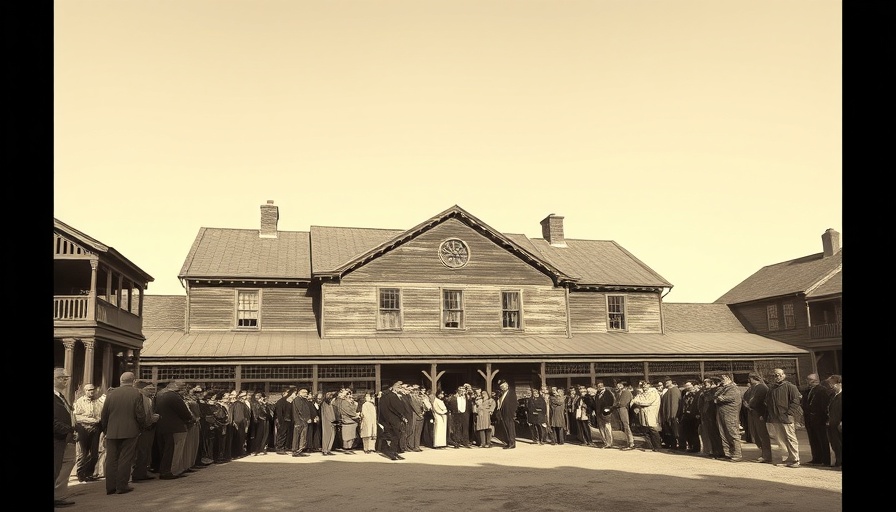
The Legacy of Anti-Literacy Laws in America
In the aftermath of the Civil War, a dramatic shift began to redefine education for Black Americans, particularly near the Sea Islands off South Carolina where the first schools dedicated to Black students emerged. This pivotal moment in educational history symbolizes a determined transition from centuries of repression to a promising future of literacy and empowerment. However, as Derek W. Black elucidates in his essential work, Dangerous Learning: The South’s Long War on Black Literacy, the shadows of previous anti-literacy laws cast a long and troubling shadow over America's education systems even today.
Understanding the Historical Context
The emergence of anti-literacy laws in the antebellum South revealed the profound fear that literacy instilled in the white plantation-owning society. Following bloody slave uprisings—like those led by Denmark Vesey and Nat Turner—Southern lawmakers enacted policies to suppress Black education, asserting that literate Black individuals posed a threat to their societal structure. This culminated in a series of laws, such as the Negro Seaman Act, which targeted Black sailors and restricted their access to literature deemed dangerous. The irony was that these laws only stoked the flames of determination among Black residents seeking knowledge.
Modern Parallels and Ongoing Challenges
Today, issues surrounding educational equity continue to echo the past. Black states’ rights advocates have emerged once again, as we see hue and cry over topics like critical race theory and curriculum transparency deeply dividing educators, parents, and policymakers. Black draws a compelling parallel between 19th-century fears surrounding Northern intellectual influence and contemporary anxieties over “woke” education, challenging readers to recognize how history shapes current debates.
The Resilience of Black Education
Despite the grim history of anti-literacy laws, the perseverance of Black communities in pursuit of education has been extraordinary. Figures like Frederick Douglass transcended restrictions with fierce determination, asserting that knowledge is indeed power. Black history is replete with tales of brave educators like Mathilda Beasley and John Berry Meachum, who risked their lives to teach the next generation despite the legal hazards they faced. Their legacy forces us to acknowledge the value and necessity of literacy in building a just society.
Call to Action: Why Literacy Matters Today
The story of Black literacy in America is a tale of strength and resilience worth celebrating. However, understanding this history is more than just a narrative for educators; it is a call to action. Teachers, school administrators, and parents must advocate for curriculum inclusivity that respects the past while actively promoting diversity and equity in education. As the nation reinvents its educational policies, it falls upon us to ensure that the lessons of the past are not forgotten and that all children receive an education that empowers them.
 Add Row
Add Row  Add
Add 




 Add Row
Add Row  Add
Add 

Write A Comment